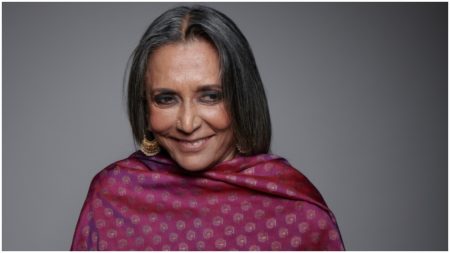Ghanaians Caught in the Crossfire of Burkina Faso’s Islamist Insurgency
A Bloody Conflict Spills Across Borders
The conflict between Islamist insurgents and the military in Burkina Faso has drawn in fighters from neighboring Ghana, according to interviews with three Ghanaians who have participated in the fighting. These men, all in their late thirties or early forties, described scenes of indiscriminate violence and bloody battles, with one recounting the horrifying sight of 40, 50, or even 100 dead bodies in a single battle. They revealed that they had crossed the porous 550-kilometer border between Ghana and Burkina Faso multiple times since 2018, often undetected by security forces.
The men denied being motivated solely by religion or jihadist ideology, asserting that their primary reason for fighting was to defend civilian communities with whom they had strong family and ethnic ties. One of them shared a deeply personal story of loss, explaining that his elder brother, sister-in-law, and their children were all killed by the Burkinabe military during a raid on their forest community. "The military came to their community in the forest. They killed all of them, a whole household, including 29 people," he said, his words reflecting the pain and anger that drove him to take up arms.
A Mix of Motives: Religion, Revenge, and Livelihood
While the men described their involvement as a form of community defense, one of them expressed overt religious zeal. "If you die while fighting with the jihadists, then you are driving to jannah (paradise), on the path of the righteous," he said, suggesting that for some, the conflict carries a divine purpose. However, not all shared this viewpoint. Another man admitted to participating in attacks on civilians, justifying such actions by claiming that local populations were collaborating with the military against them. "Some local people support the military in attacking us, that’s why we have to kill them too," he said.
Despite their involvement in the violence, the men expressed a sense of resignation and moral unease. "I’m not happy to fight like this. The number of people we kill, the people the military kill, it’s very bad. But this fight has entered our blood," one of them admitted. Their stories highlight the complex and often contradictory motivations behind their involvement in the conflict, blending personal grievances, communal loyalty, and ideological beliefs.
The Economic Incentive: Cattle and Weapon Trafficking
Beyond the ideological and personal drivers, the conflict in Burkina Faso has also become a lucrative business. The men revealed that jihadist groups are engaged in the theft and trafficking of livestock, stolen from displaced communities and sold in markets across the border in northern Ghana. "When we attack a community, we take their animals: sometimes 50, sometimes 100," one of them explained. This practice has reportedly become a major income stream for groups like Jama’at Nusrat ul-Islam wa al-Muslimin (JNIM), an al-Qaeda affiliate active in Burkina Faso, Mali, and Niger.
Cattle dealers in northern Ghana confirmed to the BBC that livestock stolen by insurgents are being smuggled into the country and sold at local markets. This cross-border trade has not only fueled the insurgency but has also deepened its ties to communities in Ghana, some of whom may inadvertently or deliberately support the insurgents by purchasing the stolen goods.
Refugees Fleeing the Carnage: Stories of Survival
The conflict in Burkina Faso has displaced millions of people, with many seeking refuge in neighboring countries like Ghana. Among them is Ninpoa Nasuri, a woman who fled to Ghana after witnessing the brutal murder of her husband by JNIM fighters during a raid on their village in eastern Burkina Faso in 2024. "They grabbed the men, and they beat them to death. My husband was a farmer. He had nothing to do with the government militia or the conflict," she recounted.
Other refugees shared similarly harrowing stories, describing indiscriminate killings by both insurgents and the Burkinabe military. Saafiya Karim, who also escaped to Ghana, recalled how elderly villagers—some as old as 80 or 90—were slaughtered without reason. "These people can’t hold a gun, can’t fight with anybody. They killed them for no reason," she said. These testimonies underscore the brutal nature of the conflict and the devastating impact it has had on civilian populations.
Jihadist Influence Reaches Ghana’s Borders
While Ghana has thus far avoided the worst of the insurgency, the conflict’s influence is beginning to seep into the country. In the town of Bawku, located in northern Ghana, a long-standing ethnic conflict has intensified in recent months, with more than 100 people killed since October 2023. The violence has raised concerns that jihadist groups like JNIM may be exploiting the chaos to expand their influence.
Local residents described Bawku as a war zone, with frequent gunfights involving automatic weapons like AK47s and M16s. Journalist Mohammed Eliasu Tanko revealed that JNIM smugglers are accused of supplying weapons to both sides of the ethnic conflict in Bawku. "They do this by relying on the trucks that travel up to Niger and back carrying onions. They hide the weapons inside those trucks," he explained. Ghanaian security forces, already stretched thin, appear ill-equipped to detect these smuggling operations, leaving the country vulnerable to further instability.
A Fragile Peace and the Risk of Escalation
Despite these challenges, Ghana’s government has sought to reassure its citizens that the situation is under control. President John Mahama, who took office in January 2024, visited Bawku in an effort to promote peace between the warring ethnic groups. However, gunfights continue to erupt in the region, and the risk of the insurgency spilling into Ghana remains a pressing concern.
The three Ghanaian fighters who spoke to the BBC warned that the conflict could easily spread beyond Burkina Faso’s borders. "This thing can go to any place, or to any country. It didn’t exist in Togo but now the attacks are happening there. If they can go to Togo, they can get to Ghana. This thing is strong, it’s powerful," one of them said. Another, however, struck a more cynical tone, dismissing the insurgency as nothing more than a violent scramble for resources. "They just kill the people, and steal their livestock. What is happening is not jihad, and so I do not like it," he said.
As the conflict rages on, the stories of these Ghanaian fighters, refugees, and locals paint a grim picture of a region teetering on the edge of chaos. The insurgency in Burkina Faso has already caused unimaginable suffering, and its ripple effects threaten to destabilize neighboring countries like Ghana. Unless urgent action is taken to address the root causes of the conflict and stem the flow of weapons and resources to insurgent groups, the region may face a bleak and violent future.









